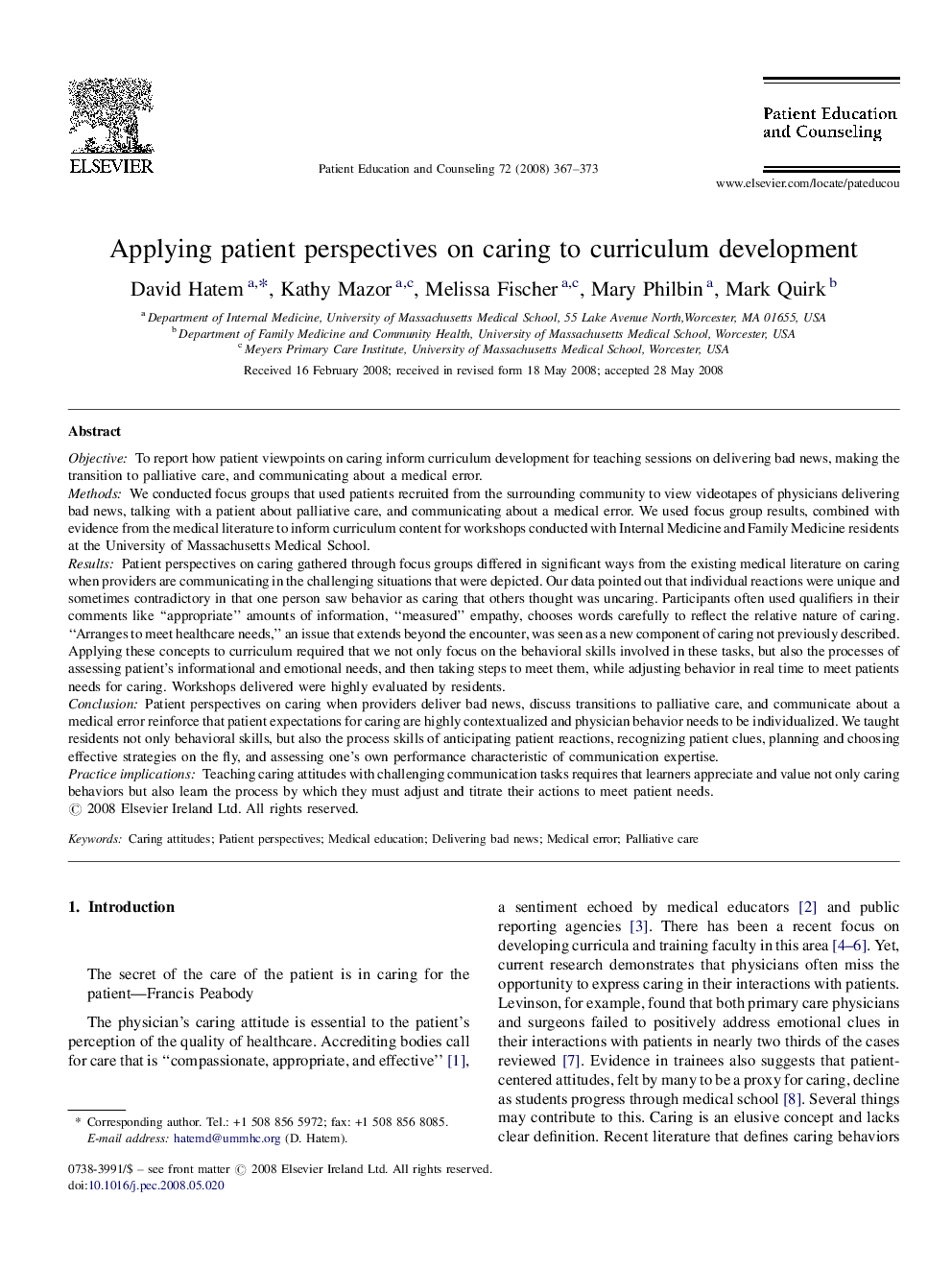| کد مقاله | کد نشریه | سال انتشار | مقاله انگلیسی | نسخه تمام متن |
|---|---|---|---|---|
| 3815140 | 1246060 | 2008 | 7 صفحه PDF | دانلود رایگان |

ObjectiveTo report how patient viewpoints on caring inform curriculum development for teaching sessions on delivering bad news, making the transition to palliative care, and communicating about a medical error.MethodsWe conducted focus groups that used patients recruited from the surrounding community to view videotapes of physicians delivering bad news, talking with a patient about palliative care, and communicating about a medical error. We used focus group results, combined with evidence from the medical literature to inform curriculum content for workshops conducted with Internal Medicine and Family Medicine residents at the University of Massachusetts Medical School.ResultsPatient perspectives on caring gathered through focus groups differed in significant ways from the existing medical literature on caring when providers are communicating in the challenging situations that were depicted. Our data pointed out that individual reactions were unique and sometimes contradictory in that one person saw behavior as caring that others thought was uncaring. Participants often used qualifiers in their comments like “appropriate” amounts of information, “measured” empathy, chooses words carefully to reflect the relative nature of caring. “Arranges to meet healthcare needs,” an issue that extends beyond the encounter, was seen as a new component of caring not previously described. Applying these concepts to curriculum required that we not only focus on the behavioral skills involved in these tasks, but also the processes of assessing patient's informational and emotional needs, and then taking steps to meet them, while adjusting behavior in real time to meet patients needs for caring. Workshops delivered were highly evaluated by residents.ConclusionPatient perspectives on caring when providers deliver bad news, discuss transitions to palliative care, and communicate about a medical error reinforce that patient expectations for caring are highly contextualized and physician behavior needs to be individualized. We taught residents not only behavioral skills, but also the process skills of anticipating patient reactions, recognizing patient clues, planning and choosing effective strategies on the fly, and assessing one's own performance characteristic of communication expertise.Practice implicationsTeaching caring attitudes with challenging communication tasks requires that learners appreciate and value not only caring behaviors but also learn the process by which they must adjust and titrate their actions to meet patient needs.
Journal: Patient Education and Counseling - Volume 72, Issue 3, September 2008, Pages 367–373